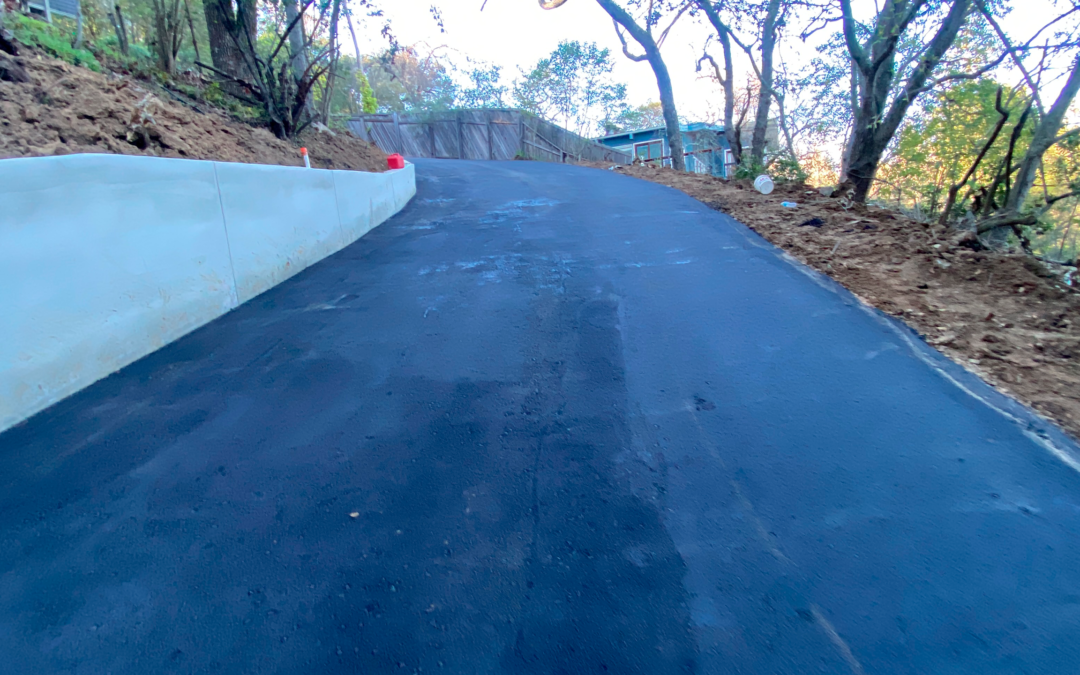When it comes to road construction, choosing the right material is crucial for ensuring durability, cost-effectiveness, and sustainability. In Sacramento, California, asphalt has emerged as the material of choice for many roadway projects. This article explores the reasons behind asphalt’s popularity, examining its benefits, suitability for Sacramento’s climate, and overall performance.
The Benefits of Asphalt
Asphalt offers numerous advantages that make it a preferred material for road construction:
- Durability and Longevity: Asphalt roads are known for their durability. With proper maintenance, they can last for decades. The flexibility of asphalt allows it to withstand heavy traffic loads and adapt to minor ground movements, reducing the risk of cracking and potholes.
- Cost-Effectiveness: Asphalt is generally more cost-effective than other paving materials. Its relatively low initial cost, combined with ease of maintenance and repair, makes it a budget-friendly option for both new road construction and resurfacing projects.
- Quick Installation: Asphalt can be laid and cured quickly, minimizing road closure times. This is particularly important in busy urban areas like Sacramento, where minimizing disruption to traffic flow is a priority.
- Smooth and Quiet Ride: Asphalt provides a smoother driving surface, which reduces vehicle wear and tear and enhances driver comfort. Additionally, asphalt surfaces tend to be quieter than concrete, contributing to reduced noise pollution in urban areas.
- Recyclability: Asphalt is 100% recyclable. Reclaimed asphalt pavement (RAP) can be reused in new asphalt mixes, reducing the need for virgin materials and decreasing environmental impact. This sustainability aspect is a key reason for its preference in eco-conscious regions.
Suitability for Sacramento’s Climate
Sacramento’s climate presents unique challenges and opportunities for road construction. The region experiences hot, dry summers and mild, wet winters, making asphalt an ideal choice due to its adaptability to temperature fluctuations.
- Heat Resistance: Asphalt performs well in high temperatures. It can expand and contract with temperature changes without sustaining significant damage. This flexibility is particularly beneficial in Sacramento’s hot summer climate, where other materials might crack or deform.
- Drainage Capabilities: Properly designed asphalt pavements can effectively manage water runoff, reducing the risk of water-related damage. In Sacramento’s rainy season, this drainage capability helps prevent issues like potholes and surface water accumulation.
- Maintenance During Wet Winters: Asphalt’s relatively quick repair time is advantageous during Sacramento’s wet winters. Potholes and cracks that develop due to water infiltration can be swiftly repaired, maintaining road safety and integrity.
Performance and Sustainability
Beyond its basic benefits and climate suitability, asphalt’s performance and sustainability credentials further reinforce its choice for Sacramento roadways.
- High-Performance Asphalt Mixes: Advances in asphalt technology have led to the development of high-performance mixes that offer enhanced durability and resistance to rutting and cracking. These mixes are particularly useful for high-traffic areas and roads subject to heavy loads.
- Sustainable Practices: The use of RAP in new asphalt mixes not only conserves natural resources but also reduces greenhouse gas emissions associated with the production and transportation of raw materials. Asphalt plants in the Sacramento area increasingly incorporate recycled content, aligning with California’s environmental goals.
- Energy Efficiency: Asphalt pavements can be produced and placed at lower temperatures through technologies like warm-mix asphalt (WMA). This reduces energy consumption and emissions during construction, contributing to a smaller carbon footprint for road projects.
Case Studies in Sacramento
Several successful road projects in Sacramento illustrate the practical benefits of using asphalt:
- Interstate 5 Rehabilitation: One of Sacramento’s major highways, Interstate 5, underwent a significant rehabilitation project using asphalt. The project aimed to improve road durability and ride quality while minimizing traffic disruption. The use of high-performance asphalt mixes ensured a long-lasting solution capable of handling heavy traffic.
- Residential Street Maintenance: Numerous residential streets in Sacramento have been resurfaced with asphalt to enhance their longevity and appearance. The quick installation and cost-effectiveness of asphalt have made it the preferred choice for these neighborhood projects.
- Airport Runways: Sacramento International Airport has utilized asphalt for its runway construction and maintenance. The material’s smooth surface and durability are critical for ensuring safe takeoffs and landings, demonstrating asphalt’s versatility beyond traditional roadways.
Future Trends and Innovations
The future of asphalt in Sacramento looks promising, with ongoing research and innovation driving continuous improvement:
- Permeable Asphalt: Permeable asphalt pavements, which allow water to pass through, are gaining popularity for their ability to reduce surface runoff and improve stormwater management. This innovation could be particularly beneficial in urban areas prone to flooding.
- Smart Asphalt: The integration of smart technologies, such as sensors embedded in asphalt, can provide real-time data on pavement conditions. This allows for proactive maintenance and enhances road safety by detecting issues before they become major problems.
- Sustainable Materials: Research into incorporating more sustainable materials, such as bio-binders and recycled plastic, into asphalt mixes continues to advance. These innovations aim to further reduce the environmental impact of asphalt production and use.
Conclusion
Asphalt’s numerous benefits, combined with its adaptability to Sacramento’s climate and its strong performance and sustainability credentials, make it the material of choice for road construction in the region. From major highways to residential streets and airport runways, asphalt provides a durable, cost-effective, and environmentally friendly solution. As technology and practices continue to evolve, asphalt will remain a cornerstone of Sacramento’s infrastructure, supporting the city’s growth and development well into the future.

